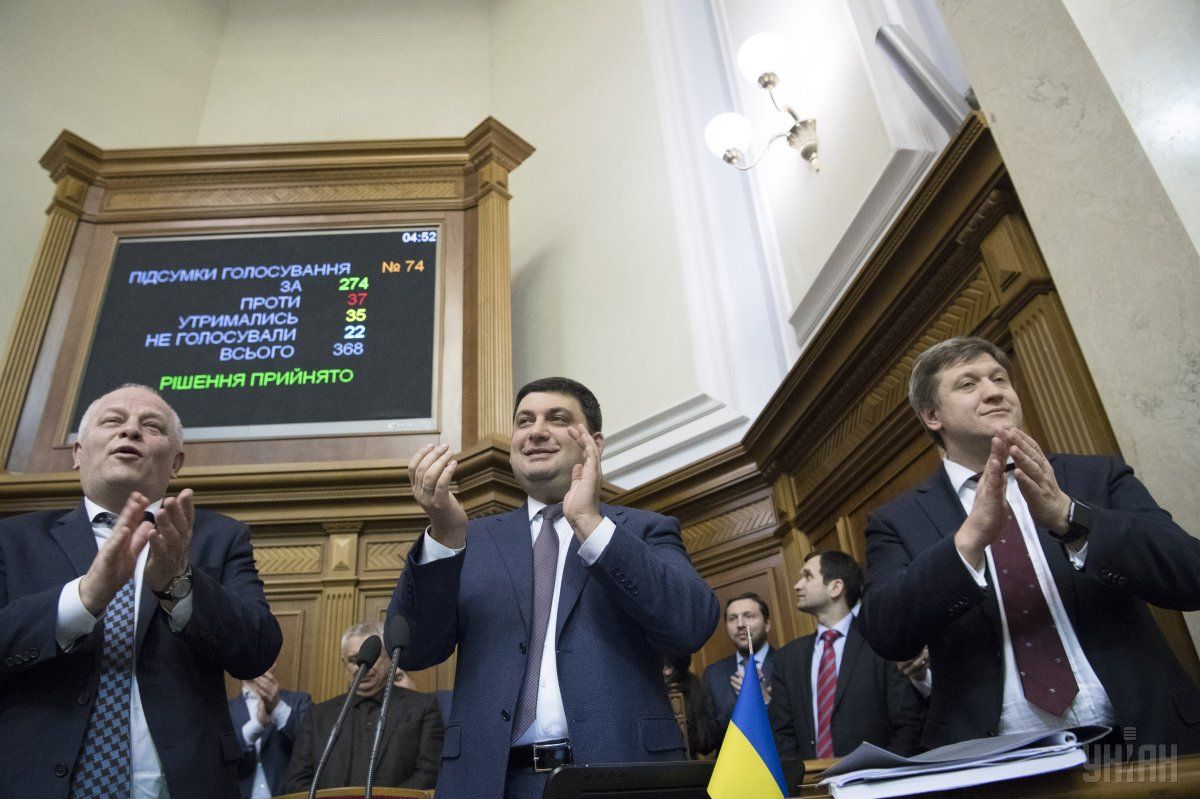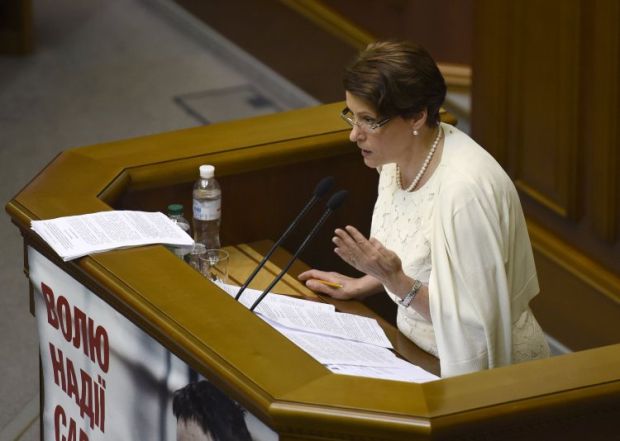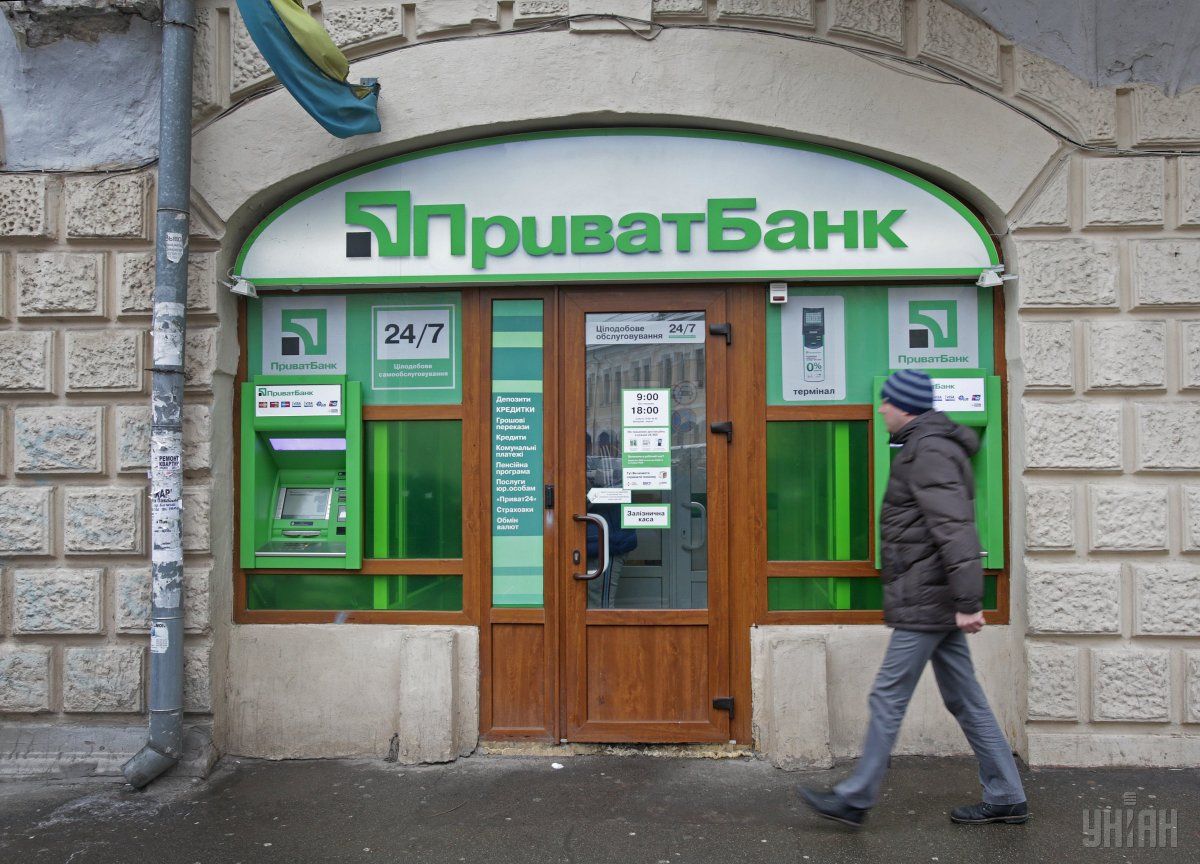
Week’s balance: budget-2017, new tax rules, and PrivatBank nationalization
The Ukrainian authorities this week took decisions that overshadowed all other economic news of the recent months in terms of their importance. The Verkhovna Rada adopted a budget for 2017, while the Cabinet nationalized the country's largest bank, PrivatBank. The path to further cooperation with the IMF is now open.
The Verkhovna Rada has successfully passed the bill on the state budget for 2017. The importance of this event is difficult to overestimate as the adoption of the budget, in full compliance with the regulation procedures and with the signs of medium-term planning was one of the key conditions of the country’s creditor, the International Monetary Fund, to continue cooperation.
"We started the process of forming an honest budget for 2017, we submitted in to Parliament in time, we held the first reading. We have been working on this budget since September 15," Prime Minister Volodymyr Groysman said during the debate in parliament.
In turn, Minister of Finance Oleksandr Danyliuk said that in finalizing the draft law on the state budget between its first and second readings, participants of the budget process managed to preserve all of the key priorities.
"During the bill’s finalization, the government has maintained budget priorities - improving defense capabilities, increasing of social standards, developing education and healthcare, supporting agriculture and infrastructure projects, supporting regional projects in the framework of decentralization policy. At the same time, we have strengthened priorities: we have laid funds for increasing the minimum wage to UAH 3,200. To this end, budget expenditures have been laid at about UAH 28 billion," said Danyliuk.
The process of adopting the country’s financial plan for 2017 did not back away from some of the Ukrainian traditions - the budget was adopted in the longest night of the year - December 21, at 4:53 - and the deputies once again complained that they didn’t have at their disposal the final version of the document with all the amendments included. The most vocal critics of the government –Batkivshchyna faction and the Opposition Bloc – have not voted for the budget. However, the document was adopted with 274 votes in its support.
The revenue part of the budget for the following year amounts to UAH 721.4 billion, while the expenditures are at UAH 790.4 billion. The deficit did not exceed the IMF-required threshold, remaining at 3% of GDP.
In addition, the budget provides for a 3%-4% GDP growth in 2017, inflation at 8.1%, and the exchange rate of UAH 27.2 to the dollar.
Also the budget forecasts the unemployment rate at 8.6% and the government debt at 66.8% of GDP.
Raising social standards is emphasized particularly: the minimum wage from January 1 will double – up to UAH 3,200, while the cost of living by the end of 2017 will have reached UAH 1,700.
At the same time, in the coming year, alcoholic and tobacco products will rise in price. Excise duty on alcoholic beverages will be increased by 20%, while on tobacco products - by 40%.
There will also be changes in the calculation of excise duty on fuel - the parliament abolished the fee for retail sales of petroleum products, however, it increased the basic rate of excise duty.
According to Groysman, consolidation of the excise tax will increase the incomes of local budgets by UAH 2 billion since the filling station networks will lose the ability to avoid paying the fee for retail sales, paying taxes only on fuel manufacturing or imports.

According to the analyst at UPECO consulting company Oleksandr Sirenko, there are no grounds for rising prices at the gas station networks.
"There are no grounds for the growth of prices at the gas station networks because, in fact, the total value of the excise tax on petroleum products has remained unchanged. The rate of the retail excise tax has been transferred to the basic tax value. Those who paid their taxes in full will continue to pay the same amount, while those who did not pay, will be deprived of profits," said the expert.
Also the parliament reduced rents for oil extraction from deep deposits from 21% to 14%, and from shallow deposits – from 45% down to 29%. At the same time, the changes did not affect gas condensate production as the rate of excise duty on its production remained at the same level.
Another important innovation in the budget-2017 was the abolition of the 2% pension levy on the purchase of foreign currency by individuals.
According to the Ministry of Finance, the budget was for the first time drawn up on the basis of assessment of necessary expenditures, rather than potential revenues. So, despite minor procedural violations and a number of controversial articles, the budget 2017 looks as a step forward in terms of the budget process.
New tax administration
Legislators have strengthened the budget adoption with a number of other important economic decisions. Among them was the anti-corruption draft law on introducing amendments to the Tax Code, long-awaited by businesses and the expert community.
The Government’s legislative initiative provided for the transfer of the administration of IT systems and databases of the State Fiscal Service under control of the Ministry of Finance in order to avoid data manipulation of data, in particular on VAT reimbursement. However, the adopted version of the bill has excluded this provision. Although, most likely, the idea has not been buried – its implementation has merely been postponed to mid-2017.
Head of the Rada’s Tax and Customs Policy Committee Nina Yuzhanina noted that at the moment, the transfer of the database cannot be implemented.

"This is the only way to carry out a technical audit of databases and information systems by July 1. In the last week, we have received the IMF ban on the transfer of databases, because it is technically impossible to accomplish. But we have now taken the first step – we have written many articles that will gradually lead to this," said Yuzhanina.
Despite the fact that one of the most important norms on the transfer of control over the IT systems has been eliminated from the final version of the bill, the law still provides for significant simplification of tax administration.
In particular, the document launches a fully functional taxpayer’s e-office. The law introduces the priority of recommendations by the Ministry of Finance over the recommendations by the State Fiscal Service, which is intended to eliminate the practice of paid individual consultations for businesses.
Moreover, the Ministry of Finance has laid down in the law the norm on a single treasury account for the payment of all taxes, except VAT and excise duties; the elimination of tax police; as well as a tool of accelerated depreciation, enabling businesses to quickly write off their assets due to such depreciation.
The document also provides for the introduction of five-year tax holidays for newly established and existing small and medium-sized businesses and the creation of a single VAT reimbursement registry.
The law establishes the principle of tacit consent to the VAT refund – agreeing the reimbursement with the SFS beforehand will no longer be required, and the reimbursement process can be stopped only if the SFS have specific objections to the procedure. At the same time, the invoice registered in the database will be sufficient ground for filing for the tax credit.
In addition, the SFS will no longer be able to unilaterally terminate the electronic VAT administration contracts.
The bill also softens the income tax system.
In addition to the tax administration, the Parliament also changed the system of financing education, healthcare, and social services. Since 2017, local authorities will maintain educational institutions on their own, while the salaries in the education sector will still be provided from the state budget through subventions.
An important decision was the adoption of the bill on the establishment of an export-credit agency based on the state-owned UkrEximBank. National associations of exporters have repeatedly stated the need to create such an instrument of state support in the face of declining volumes of foreign trade because of the war waged by Russia. However, quite unexpected was the norm included in the final version of the document stipulating the exceptional list of products, manufacturers of which can qualify for state support of exports.
"I am concerned with the unequal rules of the game, as well as the selection by the state and politicians, what products are needed to support, and what – not," said the economist and the member of the independent Supervisory Board of the NBU, Tymofiy Mylovanov.
In general, Parliament’s work this week was rather productive, and the legislative initiatives can greatly facilitate the life of the Ukrainian businesses in the coming year. And, despite populism of certain political forces during the budget process, the approach of both the Government and Parliament to the formation of the foundations of economic policy for the next year shows signs of recovery.
Nationalization of the country's largest bank

One of the major economic events of 2016 was the nationalization of Ukraine’s PrivatBank. The news on a possible nationalization began to actively be spun back in mid-autumn. But at that moment, such a huge-scale operation, the largest in the history of the country's independence, seemed almost non-realistic. After all, the financial institution serves nearly half the population of Ukraine, there is a total of 34% of all deposits in this bank, while its assets amount to 21% of assets of the entire banking system.
However, on Sunday evening, December 18, the Cabinet and the National Security and Defense Council have decided to nationalize it. On Monday, December 19, the Ukrainians woke up to the new economic realities where more than 50% of the banking system is operated by the state.
According to National Bank Governor Valeria Gontareva, the reason for nationalization was a significant (UAH 148 billion) lack of equity in accordance with the NBU standards, which in the future could lead to the bank’s insolvency.
At the same time, the country's leaders have explained the nationalization with the fact that PrivatBank is extremely important for the national economy and its potential insolvency could halt economic growth and lead to a recession.
"The entire financial and economic situation in the country indirectly depends on the financial standing of this bank – that is how big or, as experts say, system-related, this bank is," said Ukrainian President Petro Poroshenko. "Thus, we resort to an unprecedented decision - passing it into 100% state ownership. The state assumes responsibility and guarantees safety and integrity of funds to the clients of PrivatBank."
Prime Minister Volodymyr Groysman explained the Cabinet’s move with their concern for investors, many of whom belong to the socially vulnerable groups. "We are talking about 3 million pensioners, 500,000 students, 1.6 million socially vulnerable people, plus 3.5 million salary accounts, 500,000 entrepreneurs. With yesterday's decision we have protected 20 million bank customers and the financial stability of our country," said the head of government.
In turn, ex-top managers of PrivatBank said that the cause of nationalization was the NBU’s tightening of risk assessment and disagreed with the regulator’s statement on a UAH 148 billion capital gap.
"The bank was operating just fine, and it could continue to function normally. Mythical holes are the result of changes in the accounting policy of the National Bank, which has ceased to accept borrowings that we had had and that had earlier been accounted for," said former head of PrivatBank Oleksandr Dubilet.
One of the two key shareholders of PrivatBank Ihor Kolomoisky has also commented on the situation with the financial institution, noting that the bank became a victim of the NBU’s arbitrariness.
"PrivatBank had a well-balanced, secured loan portfolio, verified by an international audit. But the NBU, by constantly changing its own regulations, invented new and different ways to artificially reduce the bank's capitalization. Then they began to talk about a mythical gap of UAH 150 billion, 97% of related party loans, about the fact that all the money had been stolen or siphoned off into the tax havens. Yet, these were the figures they received as a result of free changing of the accounting policy," the businessman said in a statement. At the same time, Kolomoisky said that in this situation, the decision on the bank’s nationalization was correct, helping to protect depositors' funds. "I would like to thank the Cabinet of Ministers and particularly [Prime Minister] Volodymyr Groysman ... I think that the Prime Minister and his team have shown real courage by taking this difficult decision. If they had not taken this step, this would have jeopardized the entire financial system of Ukraine," he said.
Assurances by the Government, the NBU, and the shareholders regarding the bank’s continued stable operation have been confirmed in practice – the bank’s customers (physical persons) following the nationalization have not felt much inconvenience (except those who, with enviable persistence, have been withdrawing their money from the bank’s ATMs). The accounts of legal entities on Monday were blocked for several hours to conduct a technical audit. But by Wednesday evening, all restrictions for the legal entities have been removed.
Thus, the bank’s transition to state ownership is actually positive news for depositors, as the Rada adopted the law, according to which 100% of the population’s funds in PrivatBank is now guaranteed by the state. All of the bank's IT services so popular among Ukrainians will still be available.
However, the expert community fears inflation risks related to the bank's capitalization. The state intends to replenish the capital of PrivatBank with bonds worth UAH 116 billion and gradually monetize them if necessary.
"If there are no raids on the bank [by the people wishing to withdraw their money] and IT systems are operational, the conversion of bonds into cash will be slow and there will be no critical pressure on inflation and macroeconomic stability," said the member of the NBU Supervisory Board, Tymofiy Mylovanov.
The role of the nationalization of this magnitude can hardly be overestimated. The agreement between the State and PrivatBank shareholders was welcomed by IMF Managing Director Christine Lagarde, the G7 ambassadors, the EBRD, as well as most of Ukraine’s international partners.
Ukrainian Eurobonds reacted positively to the bank’s nationalization, decreasing in price and thus, reducing the cost of borrowed resources. But, even more importantly, the nationalization of PrivatBank was one of the first examples of a civilized agreement between a big business and the state in the interests of the economy as a whole and depositors in particular.
Nationalization of Privatbank and the adoption of the budget for 2017 open the path to Ukraine’s further cooperation with the IMF and therefore, to the stability of the main macroeconomic indicators and prospects for sustained economic growth. The NBU said that with the decisions adopted, there are no obstacles left on the way to obtaining the fourth tranche from the IMF, so the money can be received in early 2017.
Maksym Shevchenko (UNIAN)

